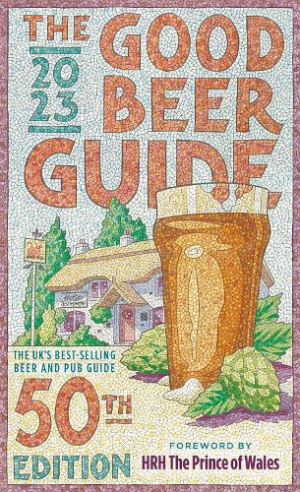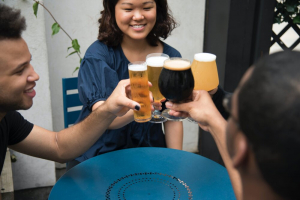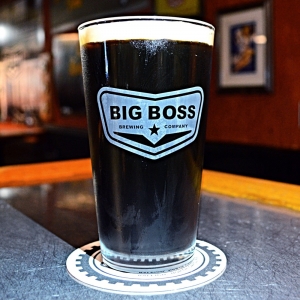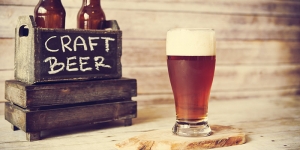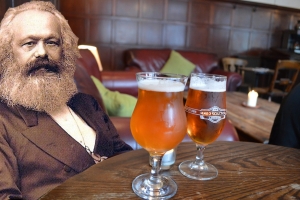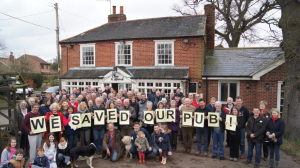
Wetherspoons and an alternative to the neoliberal capitalism of big pub chains
Tim Martin, the public face of Wetherspoons, was given a knighthood in the NewYear Honours list. Officially this was for his services to the hospitality industry. Reports however suggested that hard right Tory Minister Kim Badenoch was keen for Martin to get a gong for his pro-Brexit activities. Martin has indeed been a very vocal supporter of Brexit and appeared on public platforms with Nigel Farage and Boris Johnson to promote it.
What’s more, he flooded his pubs with pro-Brexit information on beermats and in the Wetherspoons News magazine. It might be noted, however, that unlike Johnson and Farage, Martin does not have a racist perspective on immigration. After all, he needs people to work in his 800 pubs!
There is nothing to suggest that most drinkers in Wetherspoons paid any attention to Martin’s Brexit views and indeed such interventions have a long history in British brewing and pubs. The brewers who also historically owned most pubs were known as the Beerage because of their links to the Tory Party. Before the rise of Labour, which was equivocal on drink, the Tories’ main opponents were the Liberals, who were temperance supporters.
Even when I first started drinking beer in the 1970s it was obvious that entering most pubs and drinking a pint of beer would mean a few of your pennies heading towards the Tory Party. This did not make me – or I suspect most others – decide to vote Tory, in fact quite the reverse.
This is an important point because perhaps uniquely amongst pub and brewery owners, Martin is the focus of opprobrium. Some of this is entirely justified. In an industry that is weak on union organisation, Wetherspoons does not recognise a union.
Part of the criticism of Martin however is because of his pro-Brexit views, usually from hardline supporters of a neoliberal EU. Indeed, there is an app called Never Spoons which allows users to find an alternative to Wetherspoons in their local area.
This assumes that other pubs and pub chains are better than Wetherspoons when it comes to political outlook and staff conditions. There are individual bars that do an excellent job, but the pub chains owned by global brewers such as Carlsberg, Marstons and Heineken are not noted for their progressive views and politics.
Global brewers don’t tend to have a specific view on British politics. They simply want Governments of whatever political flavour to promote conditions that help them make profit. Others such as Greene King and Fullers, although both now owned outside of the UK, have until recently supported the Tory Party.
Once we can get over what might be called Wetherspoons exceptionalism, we can begin to look at why the Tim Martin has been successful and what those of us who prefer different models of running pubs might want to do about it.
Media reaction to Martin’s Knighthood was surprisingly positive in some surprising quarters. The Guardian’s economics correspondent praised not Martin but the pubs, as did several letter writers to the paper.
Wetherspoons started out in North London in the late 1970s. Andrew Marler opened a pub in Muswell Hill, notable in particular for selling real ales from regional brewers rarely seen in the capital.
Tim Martin was then a young lawyer living in the area and fed up with the poor state of pubs in the area. It was one thing I had in common with Sir Tim, as I was then also living in Muswell Hill and found myself drinking in Marler’s Bar. Marler faded from the picture and Martin started what became the Wetherspoons pub chain initially by opening lots of pubs in North London, before it became clear that the model would work nationally
It may be surprising in 2024 but the left in North London 40-plus years ago regarded Wetherspoons as unequivocal good news. Martin’s pubs did not host political meetings, although Paul Foot once spoke on his book Red Shelley at the Rochester Castle in Stoke Newington – still a Wetherspoons pub and an entry in the 2024 Good Beer Guide.
The reason why left-wingers frequented Wetherspoons was because while it sold alcohol, it also had coffee, all day food, no television or music blaring out and clean toilets. One might think this was standard for a pub – but it wasn’t then, or now. This combination meant that Martin’s pubs attracted a far wider mix of customers based on gender, ethnicity and age than many of their competitors.
Of course one can idealise this. Wetherspoons now has around 800 pubs and some will inevitably have groups of loud and lairy men making them rather less than welcoming to all.
Nevertheless, the Wetherspoons model was sufficiently different to be a success. As it currently stands it is a model, not in most cases of great pubs, but reasonable ones where you know what you will find. As an American journalist touring the UK noted, they will always be open, the heating will be on in winter, tables will be clean and the lack of TV and music means you can engage in
conversation, about the joys of Brexit or anything else.
This is our point of departure into an alternative or post-Wetherspoons world of pubs without Sir Tim Martin. In his recent book on the history of Working Men’s Clubs, Pete Brown finds himself in the White Swan pub, Highbury Corner, North London. It’s a Wetherspoons, and Brown writes that in many ways it could be a club, as he sits observing customers enjoying an afternoon beer or coffee and chat about life. He’s there because upstairs is the HQ of the Club and Institute Union, the body that runs Working Men’s Clubs.
Brown remarks that Wetherspoons has some similarities to a club. He’s thinking not of the Victorian men-only period but more recent decades, when the clubs have been open to all and provided cheap beer, entertainment, company and warmth to working-class people. Some pubs used to do that too but they continue to close, and great as the beer in many craft bars may be, this is not what they aim to provide.
Of course Wetherspoons doesn’t have games or entertainment, but when you look at some of the well known community-run pubs such as the Bevy in Brighton, or the Antwerp Arms in Tottenham, it can be seen how the Sir Tim Martin model, removed from a commercial pub chain focus and developed as similar to a modern club but with a pub status, could be a way beyond the big pub chains.
It could also be a way of reinvigorating community life where decades of neoliberalism have stripped the soul out of so many places.


